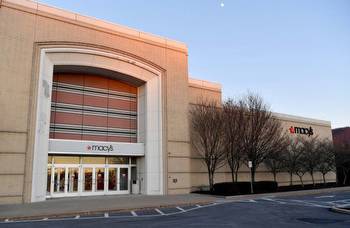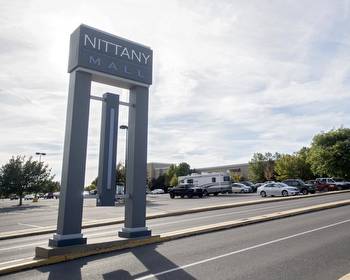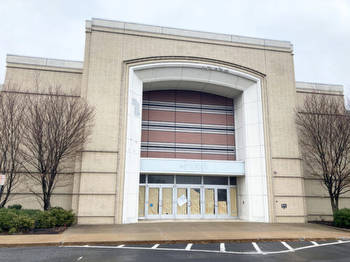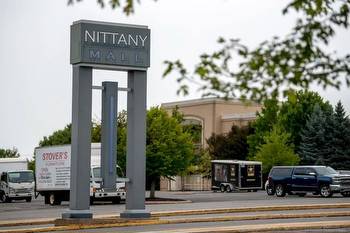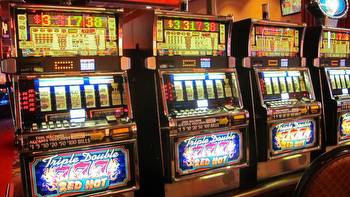Gaming Control Board Approves License for Nittany Mall Casino

The Pennsylvania Gaming Control Board on Wednesday unanimously approved a license for the proposed mini-casino at the Nittany Mall, but a potential appeal and a parallel lawsuit by a competing company mean the facility is unlikely to move forward any time soon.
SC Gaming OpCo, owned by investor and former Penn State trustee Ira Lubert, was awarded the state’s fifth category 4 casino license about two and half years after Lubert won an auction to apply with a $10 million bid.
The $127 million casino project is planned for the 94,000-square-foot former Macy’s property at the College Township mall.
While the board approved the license, it cannot be issued until any appeals are resolved, and a competing casino company is likely to contest the decision.
Stadium Casino, which was the losing bidder at the 2020 auction, has argued that Lubert subsequently partnered with other entities and individuals who may have ownership interests and who were not eligible to bid because they had no pre-existing interests in Pennsylvania casinos. State law for Category 4 casinos requires bidders to have ownership in existing casinos in Pennsylvania, and Lubert was eligible because of his ownership interest in Rivers Casino Pittsburgh.
SC Gaming has partnered with Bally’s, which does not have any Pennsylvania casinos, to develop the project. The board on Wednesday also approved a casino management license for Bally’s.
Baltimore-based Stadium, which operates the Live! casinos in Philadelphia and Pittsburgh, contended that the PGCB did not even have the statutory authority to consider the license application because of the ownership questions.
Stadium was granted 15 minutes to speak at Wednesday’s hearing but was denied discovery and not permitted to question witnesses. Attorney Mark Aronchick called the limitations “an abuse of discretion” by the board and said that because Stadium was the only party involved questioning the authority to consider the application, an adversarial hearing should have been conducted.
“You have tied our hands,” Aronchick said. “You are not permitting us to do it in the proper way and that is not right.”
PGCB’s chief enforcement counsel, Cyrus Pitre, said the board’s statutory authority is clear.
“The authority is in the [Pennsylvania gaming] act,” he said. “The act is replete with the authority of this board, so as far as I’m concerned that argument goes out the window. Everything submitted by Mr. Lubert as an applicant is similar to just about every other application that we’ve received for a category 1, 2, 3, 4 license. His application is no different from Stadium’s application or any other applicant that came before us in general. There is nothing unsuitable about the application. There is nothing unsuitable about the integrity of the source of the funds, the source of the bid. All of that has been investigated and is of a suitable nature.”
Lubert’s attorneys stated that he is the sole owner of SC Gaming OpCo, that any transfer of ownership would require PGCB approval and that state law does not prohibit having other financial backers.
Office of Enforcement Counsel attorney Ashley Gabrielle said PGCB’s Bureau of Investigations and Enforcement and its Financial Investigations Unit conducted “exhaustive and detailed” background investigations and found no issues.
“…OEC is of the opinion that SC Gaming OpCo is eligible and suitable for the issuance of a category 4 slot machine license at this time,” Gabrielle said. “As such, OEC is of the opinion that the board has the authority and duty to consider this application as it does any other application that is ripe for consideration.”
An appeal of the board’s decision would go to the Pennsylvania Supreme Court. Stadium also has a lawsuit against Lubert and the PGCB pending in Commonwealth Court, with no clear timeline.
If it is awarded the license and survives the appeal — no casino license decision in Pennsylvania has been overturned on appeal to date — SC Gaming would then have to decide whether to wait for resolution of the lawsuit before commencing with construction.
Casino Plans
The vast majority of Wednesday’s hearing focused on information that largely has already been made public.
Eric Pearson, a 24-year casino management veteran who at an August 2021 public input hearing in State College was introduced as the future general manager and CEO of the Nittany Mall casino, reviewed the third-party impact report that concluded “the regional draw of the casino is expected to have a net positive impact on College Township tourism, helping to revitalize the Nittany Mall and attract other retail and hospitality operators to the area.”
Pearson also gave a presentation on plans for the casino, including black-and-white interior renderings, most of which were previously displayed at that 2021 meeting.
Construction on the casino is expected to take about a year to complete. The casino is expected to be a 24/7 operation that would have 750 slot machines, 30 table games and sports betting along with a sports-themed restaurant and bar with an entertainment stage and a multi-outlet quick-serve food court.
It would have two exterior public entrances and one from inside the mall and would only be open to individuals age 21 and older, including for the restaurant and food court. ID scanning will be employed at each entrance.
Pearson also noted there would be 24-hour security, regular parking lot patrols and video surveillance inside and outside the casino.
“In my over 20 years of working in this industry, I’ve come to view safety and security as not only operating functions but truly as a competitive advantage,” he said.
At stabilization, the casino is expected to have 350 to 400 permanent full-time equivalent positions.
A traffic impact study found no significant improvements were needed to accommodate the casino, and that the surrounding road infrastructure was built to handle the mall at full capacity. But SC Gaming will be required to conduct another traffic study one year after opening to verify that the projections were correct and make any changes if necessary.
Community Opponents Unhappy
Supporters of the casino have argued it will provide a new entertainment venue to revitalize the College Township mall and an economic boost that will create millions in tax revenue. Host municipalities and counties each receive 2% of a casino’s slot machine revenue and 1% of table game revenues. College Township is projected to receive $1.6 million in tax revenue annually, which is about 10% of its current budget.
Opponents have been vocal about their worries of increased crime, negative effects on other businesses and gambling addiction, written hundreds of letters in opposition and unsuccessfully urged College Township Council and Penn State leaders to object to the licensure approval. About 3,300 people signed a hard copy petition and online petition against the casino.
They have cited Penn State’s close proximity to the mall — about 3 miles — and the susceptibility of college-aged individuals to gambling addiction. Pearson, who is an adjunct instructor in Penn State’s School of Hospitality Management, said SC Gaming has had no formal conversations with the university about the casino but would work with the school to warn against underage gaming.
SC Gaming attorney Adrian King acknowledged the community members who have opposed the casino, but reminded the board of the public input hearing when individuals who spoke were almost entirely in favor of the project.
“We’re certainly aware that there are people in the State College area who don’t support this casino project, but I would submit for the board that the real opposition is they don’t like gaming,” King said. “Respectfully to them, and I will state respectfully, the commonwealth itself crossed that bridge back in 2004 when the gaming act was passed.
“Most opposition to gaming is based on fears of crime and of underage gaming and of responsible gaming not be conducted. But I think the track record of this industry over the last 16 years has demonstrated that it’s simply an unfounded concern. This organization, the gaming control board with its law enforcement partners and with its operator partners work extremely hard to ensure that those problems do not arise.”
Board members did not ask any questions about community opposition, which rankled members of the community group Say No Casino, who felt the PGCB did not consider public input.
State College resident and Say No Casino member Andrew Shaffer called the decision “extremely disappointing,” writing that the community had no one to represent their interests at the hearing because the public comment period closed last June.
“They ignored the comments that were submitted before then, and they refused to allow public comment at this meeting,” Shaffer wrote. “Today’s hearing was very much a case of two wolves and a lamb taking a vote on what to eat for dinner.”
For his part, Lubert said he believes the casino is an opportunity to revitalize the mall and boost the surrounding area, comparing it to the Valley Forge Casino Resort, which he opened in 2012 (and where Pearson was GM and CEO) and sold to Boyd Gaming in 2018. Valley Forge brought new life to an ailing convention center and hotel and became one of the most successful casinos in the state, he said.
“As we have all seen, brick and mortar retail shopping has taken its lumps in recent years as internet-driven retail commerce has grown and then skyrocketed in the age of COVID. Shopping malls in particular have been hit hard, and this includes the Nittany Mall,” Lubert said,
“I intend to use the same formula I used at Valley Forge here. I believe the category 4 casino I intend to construct at the Nittany Mall will reinvigorate the property and draw new businesses to the mall itself and the surrounding area. This, in turn, will create jobs and help the State College region’s economy grow forward.”











